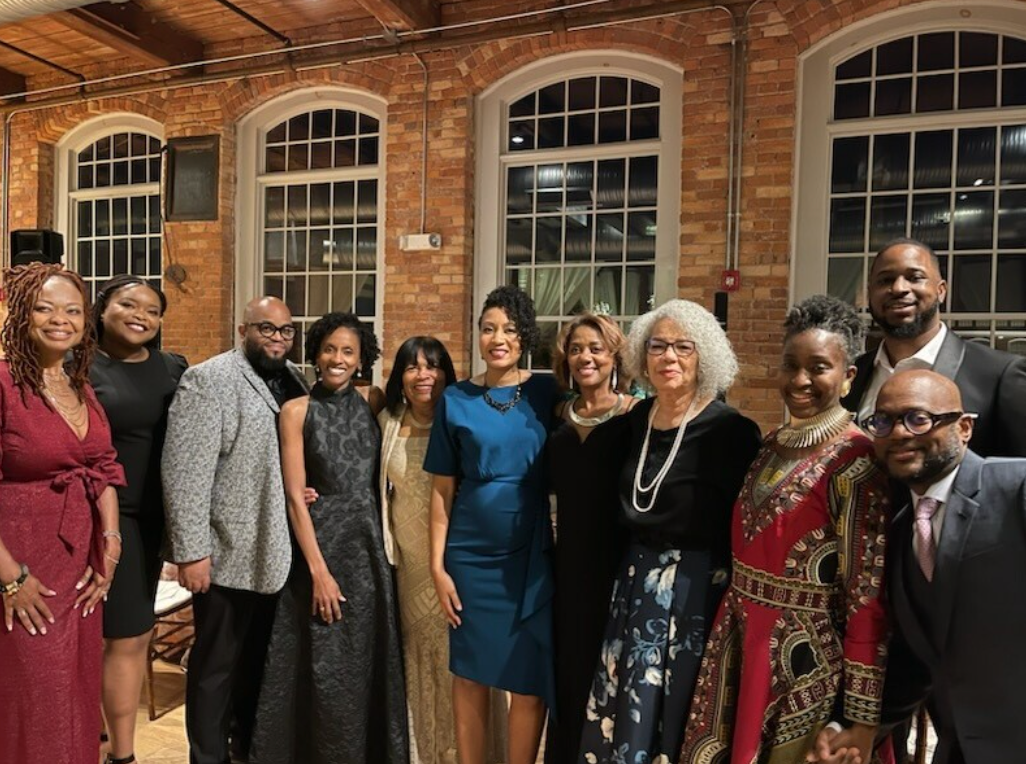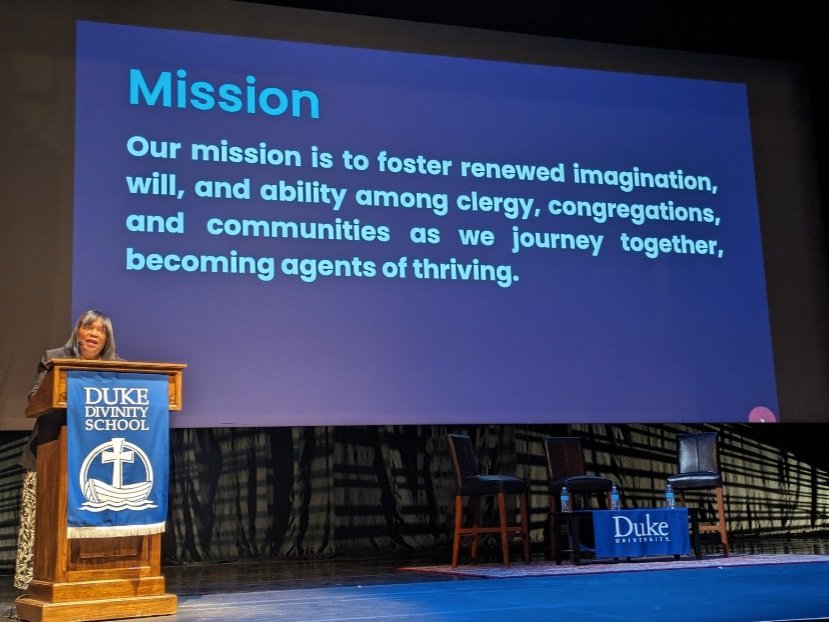Practicing Love of Neighbor
Attending to the love of God in our neighbors is at the core of the Ormond Center’s mission. We believe that to accomplish our mission, we must first build a community of love and respect for each other. Leading with an intentional foundation of self-love and team-love, we strive to show up for our neighbors every day—whether that is through imagining with a rural faith-based partner about how to repurpose their underutilized space, journeying with clergy leaders in Durham to serve our neighbors in this local community that we share, or collaborating with students, faculty, and staff working among us here at home within the halls of Duke Divinity School, “in service and witness to the Triune God in the midst of the church, the academy, and the world."
As we journey alongside our internal friends and external local and rural church and community neighbors, we seek to encounter God in all who come our way—those we see every day and those in our midst as we journey alongside them, seeking the shalom of the city where we are sent (Jer 29:7). We follow the call to “love God [. . . and . . . to] love your neighbor as yourself” (Mark 12:31) as we join the relational love-dance that our Triune God invites us into. Below are a few stories about some of these relationships that inspire us to be better neighbors.
Meet Our Neighbors
BUILDING COMMUNITY AMONG OURSELVES
FOSTERING A COMMUNITY OF LOVE, TRUST, AND RESPECT
From Left to Right: Todd Maberry, Liz Howze, Linda Silver Coley, Maria Mugweru, and John Parker
Faith, hope, and love should abide at home among the people one interacts with on a day-to-day basis. The Ormond Center knows the importance of trust and respect in building high-powered work teams. We recently welcomed several new members to our organization. Given these additions, we decided to get to know each other and understand one another’s gifts, talents, hopes, and dreams, and set aside an entire day to intentionally focus on building community among ourselves.
We also wanted to understand, each other's motivations for engaging with the Ormond Ceneter’s mission. Over brunch, we took the time to share the ‘why’ behind wanting to do this work and our personalities and working styles. We spent an afternoon talking about what type of team culture we want to have and set some team goals for the balance of the fiscal year. The day ended with a visit to a rage room hidden in a Durham warehouse. We received the gift of 30 minutes in a safe environment to break or destroy plates, cups, a car windshield, and even an old dryer! It was a shared experience we will not soon forget!
BUILDING COMMUNITY AMONG DUKE DIVINITY PARTNERS
MARY LOU WILLIAMS CENTER FOR BLACK CULTURE
The Mary Lou Williams Center for Black Culture honors the renowned jazz pianist and composer, Mary Lou Williams. Fondly known as "The Lou" by students, the center is dedicated to promoting inclusivity, embracing diversity, and building a strong sense of community. A vital part of Duke University, this center serves as a safe haven for Black-identified individuals.
Featured in photo: Deborah Williams, Frederique Ndatirwa, Eric Williams, Maria Mugweru, Linda Silver Coley, Liz Howze, Erica Starke-Knight, Cathy Watson, Gabriel Smith, Wylin Wilson, and Norbert Wilson (from left to right).
Linda Silver Coley (Executive Director of Ormond Center) & Wylin Wilson (Assistant Professor of Theological Ethics at Duke Divinity)
We had the privilege of being present to celebrate its 40th anniversary on September 30th. The Lou stands as a symbol of cultural exchange and exemplifies what it means to be a supportive neighbor to students, faculty, and the local community. Through a diverse range of programs, The Mary Lou Williams Center fosters cross-cultural dialogues, offering workshops, events, and performances that engage both Duke University and the Durham communities.
These initiatives celebrate the unique qualities that strengthen these communities while transcending barriers to forge meaningful connections. The center's impact is undeniable, illustrating how the act of being a good neighbor can profoundly impact lives and generations. To them, being a good neighbor is meeting those they serve, where they are. We were honored to celebrate this neighbor's 40 years of serving the Duke and Durham communities, with our Duke Divinity School friends.
BUILDING COMMUNITY BETWEEN LOCAL CAMPUSES
A PARTNERSHIP WITH FIELD EDUCATION
Pictured: NCCU Wesley Campus Ministry Leaders
Duke Divinity School mandates that all Master of Divinity students participate in Field Education internships. This educational practice emphasizes learning together within a community context, with each student partnering with a church or community organization during their time at Duke Divinity. We are delighted to partner with the Field Education office, supporting a Duke Divinity student‘s internship with the Wesley Campus Ministry at North Carolina Central University (NCCU).
As Daniel Corpening, Director of Field Education, noted, "The Wesley Campus Ministry serves as a spiritual home for NCCU students and a launchpad for community involvement in Durham and beyond." This partnership allows the student to fully engage in the Wesley Campus Ministry's work, which includes voter education, literacy programs, and Civil Rights tours. Through this collaboration, attending to the love of God in our neighbors means bridging gaps and being willfully immersed in the life of another campus.
BUILDING COMMUNITY IN THE MIDST OF THE CHURCH, THE ACADEMY, AND THE WORLD
CONVOCATION AND PASTOR'S SCHOOL CONFERENCE
This year, the annual conference of the Convocation and Pastors' School focused on what it means for churches to faithfully serve their respective communities—by “growing where you are planted.” Clergy members in attendance had the opportunity to engage with leaders who demonstrate innovative approaches to community service. Ormond invited one of our partner congregations who exemplifies this well to co-lead the final plenary session with our team.
Our partnership with the Convocation and Pastors’ School afforded us the opportunity to invite our own neighbors, who we have walked alongside, to share their story in their own words. Our friends from the historic First Baptist Church of Norfolk shared their commitment to being present in their Norfolk community. This church, with a history spanning over 200 years, defines being a good neighbor as staying attuned to the evolving needs of their community. For Rev. Jerry Holmes and Gary McCollum, being good neighbors is about looking beyond the conditions and current state of their community and seeing the “shall be.”






